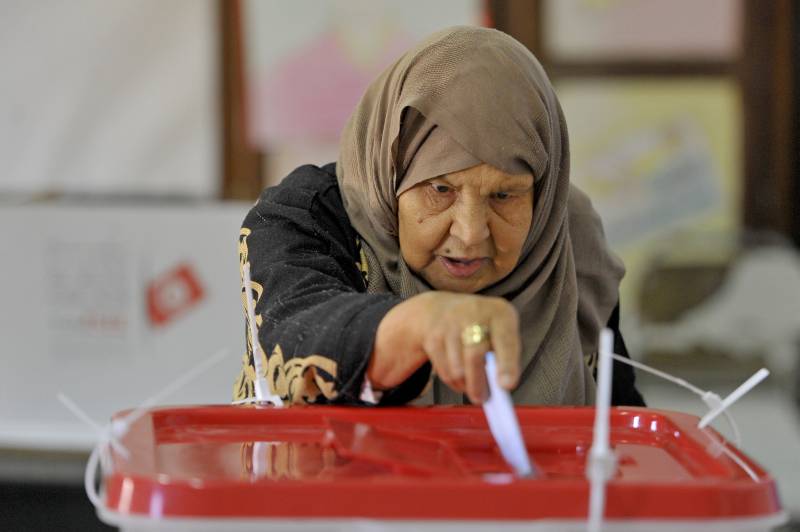Tunisians vote for neutered parliament in poll shunned by opposition

Stay tuned with 24 News HD Android App

Uninspired Tunisians voted on Saturday for a parliament which will have virtually no power, marking the culmination of a power grab by President Kais Saied in the birthplace of the Arab Spring.
Opposition political groups in the North African country are boycotting the election. They say the poll is part of a "coup" against the only democracy to have emerged from the 2011 wave of uprisings across the region.
The ballot follows three weeks of barely noticeable campaigning, with few posters in the streets and no serious debate among a public preoccupied with day-to-day economic survival.
Electoral board president Farouk Bouasker said that by 3:00 p.m. (1400 GMT) just over seven percent of the nine-million-strong electorate had cast votes.
The poll comes almost a year and a half since Saied suspended parliament and sent military vehicles to surround it, after months of political deadlock and economic crisis exacerbated by the coronavirus pandemic.
His power grab sparked fears for the democratic system that replaced dictator Zine El Abidine Ben Ali, unseated by a revolution sparked on December 17, 2010 when street vendor Mohamed Bouazizi burned himself to death to protest police harassment and unemployment.
In the marginalised city of Kasserine, Mohammed Jraidi, 40, said Saturday he was boycotting the poll.
"I don't have any faith in the political class," he said. "They've used us as lab rats for all types of elections while the economy gets worse and worse."
Abed Jabbar Boudhiafi, 59, said he was voting out of a sense of duty and hope that it would change the political and economic situation.
But he added, "we're bored of elections."
Boycotting 'farce'
Saied, a former law professor, used a July referendum to push through a new constitution giving the presidency almost unrestrained powers, laying the ground for a 161-seat rubber-stamp legislature in the country of around 12 million people.
On Saturday, he told voters that Tunisia was "breaking with those who destroyed the country".
"Those who are elected today should remember that they are being watched by their voters, and that if they're not up to the job their mandate will be taken away," he said at a polling station in a comfortable district of Tunis.
On the streets of the capital, many expressed indifference.
"I'm not taking part in this farce," said Ridha, a 59-year-old engineer who declined to give his full name.
"This president has disappointed us and he's dragging us towards the abyss."
Saied's moves against an unpopular political system were initially supported by many Tunisians tired of the messy and corrupt democratic system in the post-Ben Ali era.
But almost a year and half on, the country's economic woes have gone from bad to worse.
Inflation is around 10 percent, and frequent shortages of milk, sugar and petrol are fuelling a growing wave of emigration.
It 'will change nothing'
The previous legislature had far-reaching powers in the mixed presidential-parliamentary system enshrined in Tunisia's post-revolution constitution.
But the new chamber "won't be able to appoint a government or censure it, except under draconian conditions that are almost impossible to meet," said political scientist Hamadi Redissi.
Candidates are standing as individuals, in a system that neuters political parties including Saied's nemesis, the once-powerful Islamist-leaning Ennahdha party.
Analyst Hamza Meddeb said the election was a "non-event" and predicted few Tunisians would vote for largely unknown candidates.
"This election is a formality to complete the political system imposed by Kais Saied and concentrate power in his hands," said Meddeb, a fellow at the Carnegie Middle East Center.
Almost all of Tunisia's political parties, including Ennahdha, said they would boycott the vote.
The powerful UGTT trade union federation has called the poll meaningless.
Student Salima Bahri, 21, said she wasn't voting because it "will change nothing".
"All the candidates represent Kais Saied, not the Tunisian people," she said.
But others were determined to take part.
"It's a duty to vote, whatever the process is," said lawyer Ali Bejaoui, 48, after casting his ballot.
